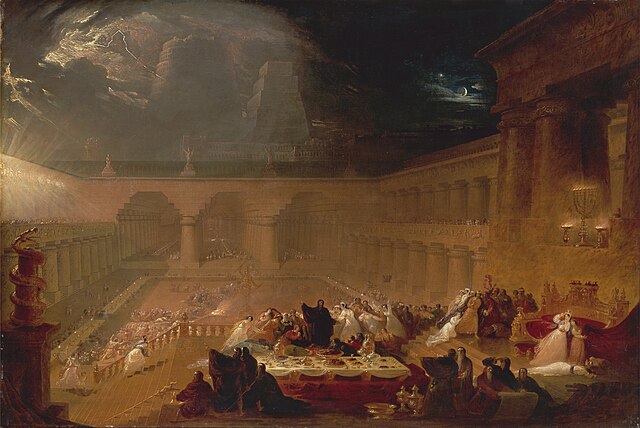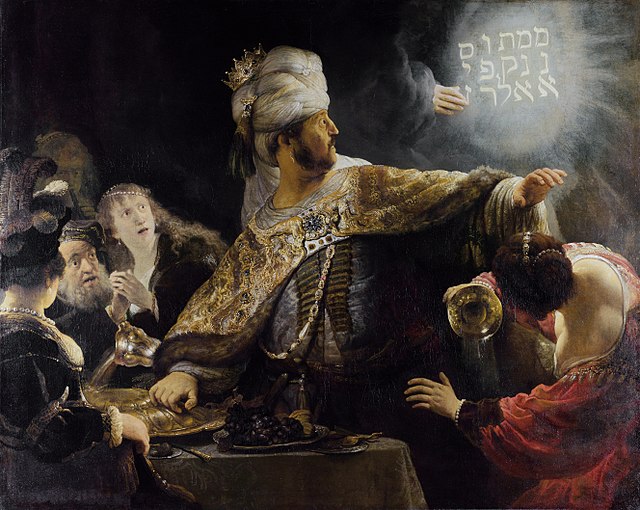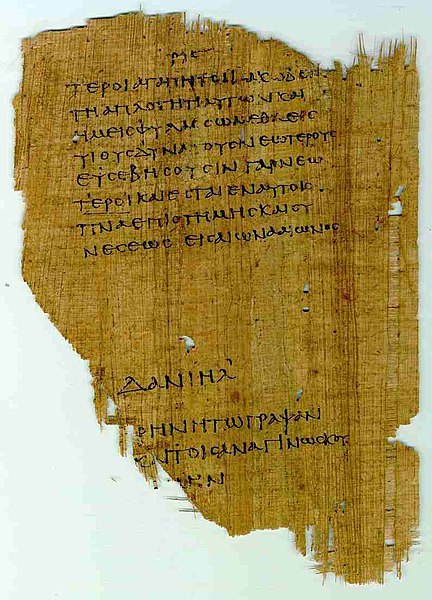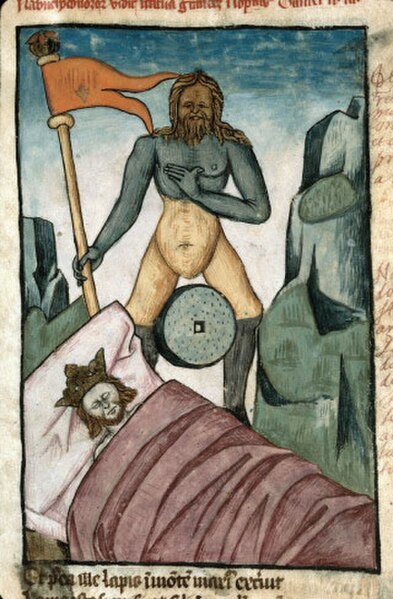Belshazzar's feast, or the story of the writing on the wall, chapter 5 in the Book of Daniel, tells how Belshazzar holds a great feast and drinks from the vessels that had been looted in the destruction of the First Temple. A hand appears and writes on the wall. The terrified Belshazzar calls for his wise men, but they are unable to read the writing. The queen advises him to send for Daniel, renowned for his wisdom. Daniel reminds Belshazzar that his father Nebuchadnezzar, when he became arrogant, was thrown down until he learned that God has sovereignty over the kingdom of men. Belshazzar had likewise blasphemed God, and so God sent this hand. Daniel then reads the message and interprets it: God has numbered Belshazzar's days, he has been weighed and found wanting, and his kingdom will be given to the Medes and the Persians.That very night Belshazzar, the Chaldean [Babylonian] king, was killed. And Darius the Mede received the kingdom […]

John Martin, Belshazzar's Feast, 1821, half-size sketch held by the Yale Center for British Art
Rembrandt, Belshazzar's Feast, 1635, National Gallery, London. The message is written in vertical lines starting at the top right corner, with "upharsin" taking two lines, following the interpretation of Samuel of Nehardea (b. Sanhedrin 22a).
The Book of Daniel is a biblical apocalypse authored during the 2nd century BC, and set during the 6th century BC. The work describes "the activities and visions of Daniel, a noble Jew exiled at Babylon"; in doing so, it interpolates a portrayal of a historical prophecy being fulfilled with a prediction of future cosmic and political upheaval. This eschatology ultimately affirms that the God of Israel's previous deliverance of Daniel from his enemies prefigures his future deliverance of the people of Israel from their present oppression.
Papyrus 967, a 3rd-century-AD manuscript of a Greek translation of Daniel
Nebuchadnezzar's dream: the composite statue (France, 15th century)
Nebuchadnezzar by William Blake (between c. 1795 and 1805)
Daniel's Answer to the King by Briton Rivière (1892)






